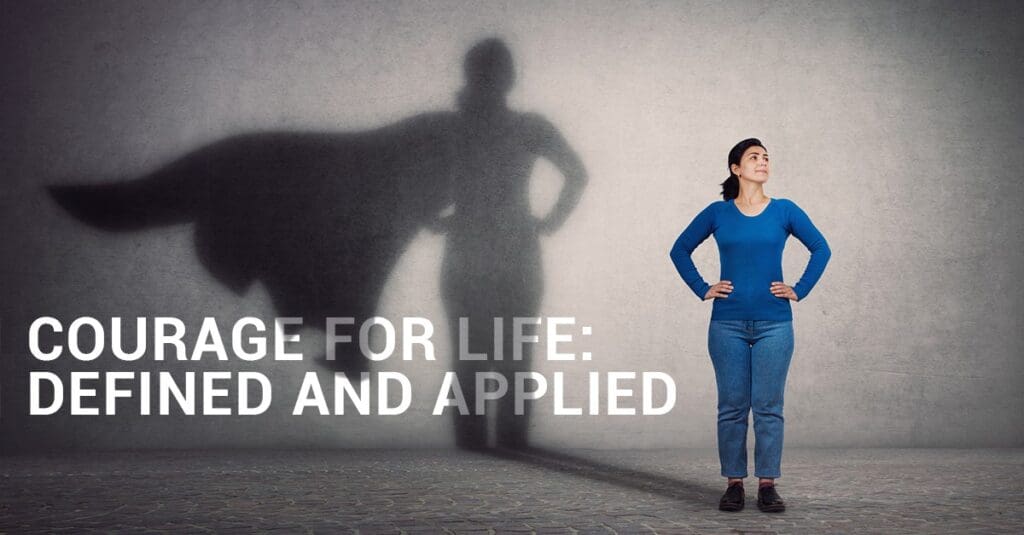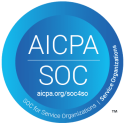The Cowardly Lion. U.S. Navy Admiral David Glasgow Farragut. While there’s a good chance you’re familiar with the former, you may not have heard of the latter. But both figures have something to teach us about courage.
In “The Wonderful Wizard of Oz,” the Cowardly Lion joins Dorothy on her journey in the Land of Oz because he doesn’t believe he is brave enough to wear the mantle of “King of the Beasts.” He wants the Wizard to grant him courage. He ultimately discovers that he always possessed this trait; he simply needed to learn how to access it to reach his full potential.
Admiral Farragut lost his mother, became a midshipman at age nine, and spent the next 60 years pursuing every opportunity presented to learn, innovate, lead, and advance. He became the first rear admiral, vice admiral, and admiral in the U.S. Navy. His loyalty, grit, fortitude, and courage were manifested in the transformational results he attained throughout his long career.
At Farragut, we are guided by three core values, the first of which is courage. We look to Admiral Farragut as an exemplar of this value. And we believe that every person has the capacity to be courageous and can work to access and apply that courageousness in their everyday life.
What does courage look like? At Farragut, we think it is expressed — and lived — in the following ways:
Loyalty to Truth
It is critical to seek the truth even when it’s difficult and to face facts even when they’re brutal. Doing so allows us a common point of embarkment for advancement and betterment — for our employees, our customers, and our company.
To go deeper, loyalty to the truth must override loyalty to people so that institutional integrity is preserved. These pursuits require us all to be open and transparent, to share the things that are often hardest to share.
Though flawed, as all humans are, “Honest Abe” Lincoln serves as our muse when it comes to exercising loyalty to the truth.
Authentic Dialog
We rely on authentic dialog — open, honest conversations in pursuit of the truth — in our dealings with one another. To engage in such dialog requires clearly distinguishing unarguable facts from inferences and opinion, as well as understanding the difference between truth and fiction — or, more benignly, story.
It also necessitates that we speak our truth (comprised of both fact and story) with the intention to connect rather than manipulate. We must stay open to others’ truths (again, comprised of both fact and story) even when those truths differ from our own.
Finally, we see authentic dialog as requiring us to seek an understanding of other viewpoints without necessarily feeling compelled to agree with those viewpoints. After all, being authentic means being true to oneself.
We hold up Nelson Mandela, famous for his writings, speeches, and negotiating skills, as an ideal representation of someone who practiced authentic dialog.
Aim High
We understand that living up to one’s full potential is a lifetime endeavor, one that demands the near-constant assessment and reassessment of goals as some are achieved and others fall by the wayside. Continually aiming high is key to this endeavor.
At Farragut, we encourage everyone — and we try at the company level — to set high standards, be bold and take calculated risks, and play to win every single day. It is only by doing so that we can push ourselves and one another to do — and be — better.
Though perhaps a controversial figure by some measures, Apple’s Steve Jobs was nonetheless the embodiment of someone who perpetually aimed high.
Resilience for the Long Game
Farragut has been around for more than 25 years, and it’s our goal to be around for at least another 75. We’re playing the long game. And that means we must be resilient, or we simply won’t make it. How do we pursue resiliency?
We empower every Farragut employee to fail well and learn fast. That is, we want our people to generate ideas, try them out, and see what happens. It’s great when they succeed. And when they fail, we want them to learn something about that failure and move on to the next idea. Tremendous value exists in being able to fall and get back up again, repeatedly.
We also encourage our employees to recover well through inner work. More specifically, we believe that taking the time to reflect on and learn from failure helps mitigate the sting of that failure and prompts further efforts to reach the original goal. It’s not enough to fall and get back up again; you must ascertain why you fell so as not to fall in precisely the same way again.
An essential component of aiming high and inevitably experiencing some failure along the way is building resilience to shame. It is crucial to accept occasional — and even routine — failure as the cost of pursuing lofty goals, and to accept failure without feeling bad about it.
Finally, we must be steadfast in our pursuit of long-term goals, especially when the long-term is 100 years! It’s easy to get distracted in today’s highly connected, fast-moving world. We want to stay focused on our mission, vision, and goals, to stay true to ourselves.
As a role model, we think of Michael Jordan, who said: “I’ve missed more than 9,000 shots in my career. I’ve lost almost 300 games. Twenty-six times, I’ve been trusted to take the game winning shot and missed. I’ve failed over and over and over again in my life. And that is why I succeed.”
It Takes Courage
Consistently demonstrating loyalty to the truth, practicing authentic dialog, aiming high, and building resilience for the long game all require courage. At Farragut, we encourage people to exercise and apply their innate capacity for courageousness as we work toward our individual and collective goals and strive to achieve our individual and collective full potential.
Do You Have a Story about Courage?
Do you have a story about being courageous? Please share it in the comments below. Let’s learn from each other — and build our courage together.





